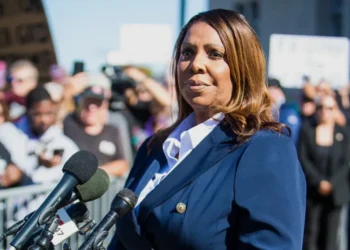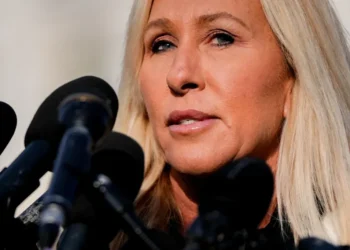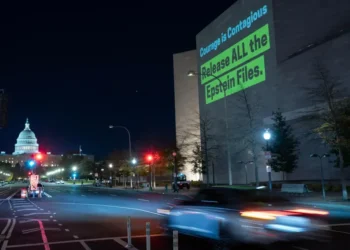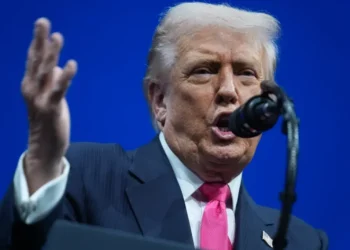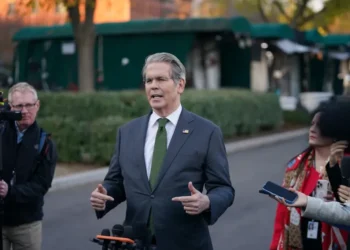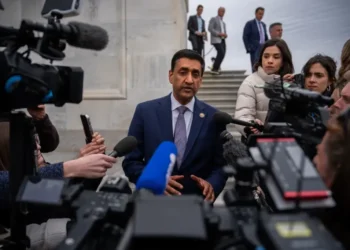Supreme Court Weighs Blocking Trump’s Birthright Citizenship Order While Considering Limits on Nationwide Court Injunctions
The Supreme Court appeared ready on Thursday to keep a nationwide block on former President Donald Trump’s controversial restrictions on birthright citizenship. At the same time, justices signaled they want to scale back the broad use of nationwide court orders — a legal tool that has repeatedly halted Trump administration policies across the country.
The court heard arguments in emergency appeals filed by the Trump administration, which challenges lower court rulings that have kept the citizenship restrictions on hold everywhere. The justices showed serious concern about what could happen if the administration were allowed, even briefly, to deny citizenship to children born in the U.S. to undocumented or temporary residents.
Nationwide injunctions, which block policies across the whole country, have become a key obstacle to Trump’s agenda and a growing source of frustration for his allies. Since Trump’s second term began in January, courts have issued 40 such nationwide blocks, according to Solicitor General D. John Sauer.
The issue of birthright citizenship is just one of several immigration-related matters the administration has asked the court to rule on quickly. Others include ending humanitarian parole for over 500,000 people from Cuba, Haiti, Nicaragua, and Venezuela, and removing temporary protections from about 350,000 Venezuelans. The administration is also involved in legal battles over deporting alleged gang members under an old law known as the Alien Enemies Act.
Trump signed his birthright citizenship executive order on the first day of his second term. The order sought to deny automatic citizenship to children born in the U.S. if their parents were in the country illegally or temporarily. This contradicts an 1898 Supreme Court ruling affirming that almost all children born on U.S. soil are citizens under the 14th Amendment.
States, immigrant groups, and rights organizations quickly sued, and courts blocked the order’s enforcement while lawsuits continue. The current case focuses on whether the government can enforce the order while those lawsuits play out.
Liberal justices strongly supported the lower courts’ decisions to block the order, emphasizing that changing birthright citizenship would disrupt a legal precedent that’s stood for over 125 years.
Justice Elena Kagan pointed out the nearly universal judicial opposition to the administration’s position. “Every court has ruled against you,” she told the government’s lawyer. She warned that without nationwide blocks, only those who can afford to sue would be protected, leaving many vulnerable.
Justice Ketanji Brown Jackson criticized the administration’s “catch me if you can” strategy, forcing individuals to file lawsuits just to protect their rights.
Several conservative justices expressed interest in limiting nationwide injunctions but wanted to understand the practical consequences and timing of such a move. Justice Brett Kavanaugh questioned how hospitals and states would handle citizenship paperwork for newborns under the executive order, noting the government only gave itself about 30 days to develop policies.
The Trump administration argued that courts have overstepped by issuing orders that apply broadly rather than just to parties in the case. Justice Samuel Alito echoed that sentiment, suggesting some judges believe they can “do whatever I want.”
On the other hand, Justice Sonia Sotomayor highlighted the chaos that would ensue if the court narrowed injunctions and allowed the order to take effect in parts of the country — children could become stateless, denied citizenship in the U.S. and unable to claim it elsewhere.
New Jersey’s Solicitor General, Jeremy Feigenbaum, warned the court about the absurd results of such patchwork rules. For example, a child born in Camden, New Jersey, could be a citizen, while one born just across the river in Philadelphia might not be.
One potential court solution could be to replace nationwide injunctions with class-action lawsuits. These cases allow individuals to represent large groups and could apply across the country, possibly addressing the issue faster. However, the Trump administration indicated it might resist or delay such lawsuits.
Emergency appeals at the Supreme Court are unusual since justices typically wait to decide the main legal questions. The administration did not ask the court to address the broader constitutional issues now, leaving uncertainty about how long inconsistent citizenship rules might apply if nationwide injunctions are limited.
A ruling is expected by the end of June.
This article was rewritten by JournosNews.com based on verified reporting from trusted sources. The content has been independently reviewed, fact-checked, and edited for accuracy, neutrality, tone, and global readability in accordance with Google News and AdSense standards.
All opinions, quotes, or statements from contributors, experts, or sourced organizations do not necessarily reflect the views of JournosNews.com. JournosNews.com maintains full editorial independence from any external funders, sponsors, or organizations.
Stay informed with JournosNews.com — your trusted source for verified global reporting and in-depth analysis. Follow us on Google News, BlueSky, and X for real-time updates.



